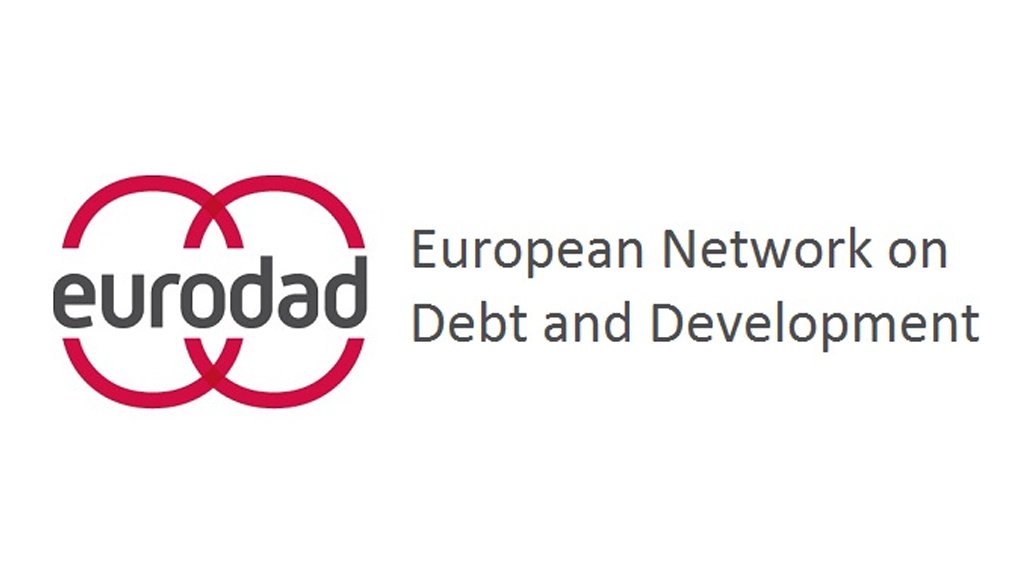- Back to the Future: A sovereign debt standstill mechanism - IMF Article VIII, Section 2 (b)0.19 MB
A new Eurodad report has identified an available IMF mechanism to impose debt standstills: Article VIII, Section 2 (b) of the IMF Articles of Agreement. The article in question allows the IMF to impose a debt standstill through the temporary suspension of enforceability of debt contracts in domestic courts of more than 189 IMF member countries, including the US and the UK.
The Covid-19 crisis has placed huge pressure on public budgets, forcing governments to respond by increasing their public spending. At the same time, the crisis has decreased public revenues due to vital prophylactic measures that have slowed economies down. As a result, developing countries are experiencing acute financial pressures. They are faced with tough questions: prioritise health care and social safety expenditures to save lives, or divert scarce resources to meet creditor claims? The outlook is grim; experts predict a cascade of defaults among developing nations within the next 12 months.
In anticipation of the imminent sovereign debt crisis, there are numerous calls for the adoption of measures for developing countries in need. These include standstills on public external debt. This is a mechanism that allows the postponement of debt repayments and provides some ‘breathing space’ to recover and, if necessary, restructure the debt. While the public sector creditors – G20 and the International Monetary Fund (IMF) – have granted some relief, the situation with private sector creditors is daunting and complicated by a collective action problem.
It seems inexcusably naïve to expect that all private sector creditors will voluntarily suspend debt service payments or join other debt relief initiatives for countries in need. It is very dangerous to put faith in the compassion of private sector creditors to join debt relief programmes on a voluntary basis. The private creditor base is heterogeneous and fraught with diverse interests. Only a minority of non-participating creditors can neutralise the efforts of the rest of the creditor base by pushing for full enforcement of the debt contracts in foreign courts. Therefore, the necessity of a binding debt standstill mechanism for private sector creditors cannot be overestimated.
A new Eurodad report suggests that the IMF already has a mechanism in place to impose debt standstills: Article VIII, Section 2 (b) of the IMF Articles of Agreement. The article in question allows the IMF to render exchange contracts unenforceable in domestic courts of IMF member countries following specific criteria.
The envisaged mechanism presents several advantages over recent proposals for a binding standstill mechanism, such as the International Developing Country Debt Authority (IDCDA) by the United Nations Conference on Trade and Development (UNCTAD) and a Central Credit Facility (CFF) by Bolton et al.
- First, this approach can be implemented in a short period of time as it does not require the creation of new intergovernmental mechanisms or facilities (notwithstanding the structural need for such mechanisms).
- Second, the activation of the standstill mechanism can be set in motion by any IMF member country and does not require a modification of its Articles of Agreement.
- Third, debtor countries acting in good faith under an IMF programme would be protected from aggressive litigation strategies from holdout creditors in numerous jurisdictions, including the US and the UK.
- Fourth, courts in key jurisdictions would avoid becoming overburdened by a cascade of sovereign debt litigation covering creditors and debtors across the globe.
- Fifth, private creditors would receive uniform treatment and ensure intercreditor equality.
- Sixth and last, the mechanism would provide additional safeguards to protect emergency multilateral financing provided to tackle Covid-19.
Report by Eurodad
EMAIL THIS ARTICLE SAVE THIS ARTICLE ARTICLE ENQUIRY
To subscribe email subscriptions@creamermedia.co.za or click here
To advertise email advertising@creamermedia.co.za or click here











